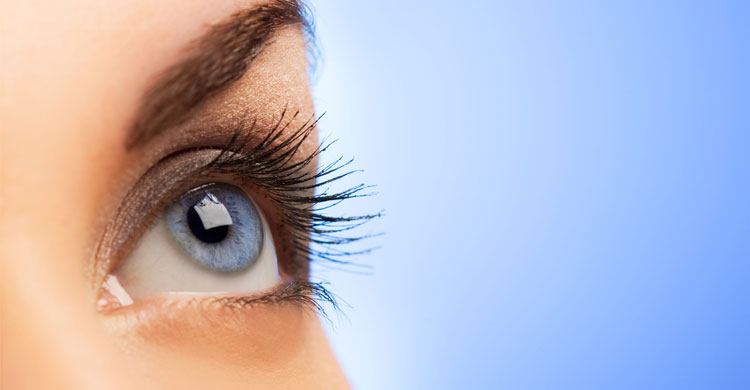Our eyes are our window to the world, yet we often take them for granted. With modern lifestyles dominated by screens and increasing exposure to environmental stressors, eye health is more important than ever. Taking care of your eyes doesn’t have to be complicated—it just requires mindful habits and a bit of attention. In this guide, we’ll explore tips and practices for maintaining healthy eyes and preventing common vision problems.
The Importance of Eye Care
Your eyes are not just crucial for vision; they’re also an indicator of overall health. Conditions like diabetes, high blood pressure, and even some neurological disorders can first manifest through eye-related symptoms. Regular eye care ensures that you not only protect your vision but also monitor your general well-being.
According to the World Health Organization (WHO), at least 2.2 billion people worldwide have vision impairment, and nearly half of these cases could have been prevented or are yet to be addressed. This underscores the need for proactive eye care.
Everyday Tips for Healthy Eyes
1. Follow the 20-20-20 Rule
Prolonged screen time can lead to digital eye strain, also known as computer vision syndrome. Symptoms include dry eyes, blurred vision, and headaches.
What to Do:
- Every 20 minutes, look at something 20 feet away for 20 seconds. This simple practice reduces strain and keeps your eyes relaxed.
2. Maintain a Balanced Diet
A nutrient-rich diet plays a significant role in eye health. Foods high in vitamins A, C, and E, as well as omega-3 fatty acids, help protect against conditions like macular degeneration and dry eyes.
Best Foods for Eye Health:
- Leafy greens like spinach and kale
- Fatty fish like salmon and tuna
- Eggs, nuts, and seeds
- Carrots and sweet potatoes (rich in beta-carotene)
3. Stay Hydrated
Dehydration can lead to dry eyes, as your body struggles to produce enough tears to keep them lubricated. Drink plenty of water throughout the day to support overall eye health.
Protecting Your Eyes in Different Environments
1. Wear Sunglasses
Sunglasses aren’t just a fashion statement—they’re essential for protecting your eyes from harmful UV rays, which can cause cataracts and macular degeneration over time.
Look for: Sunglasses that block 99-100% of UVA and UVB rays.
2. Use Protective Eyewear
If you work in environments with flying debris, chemical splashes, or other hazards, always wear safety goggles or shields. Similarly, sports like basketball or racquetball also warrant protective eyewear.
3. Limit Screen Exposure
Blue light from screens can disrupt sleep and contribute to eye strain. While the evidence on long-term damage is inconclusive, it’s wise to take precautions.
How to Reduce Impact:
- Use blue-light blocking glasses.
- Adjust screen brightness to match your surroundings.
- Turn on night mode on your devices during evening hours.
Common Eye Conditions and How to Prevent Them
1. Dry Eyes
Dry eyes occur when your tear glands don’t produce enough tears, often due to prolonged screen time or environmental factors.
Prevention Tips:
- Blink frequently, especially during screen use.
- Use a humidifier to add moisture to the air.
- Consider artificial tears or lubricating eye drops.
2. Cataracts
Cataracts cloud the lens of your eye, causing blurry vision and difficulty seeing at night. They’re more common as you age but can be accelerated by UV exposure and smoking.
Prevention Tips:
- Wear UV-blocking sunglasses.
- Avoid smoking.
- Eat a diet rich in antioxidants.
3. Glaucoma
Glaucoma damages the optic nerve, often due to increased pressure in the eye. Early detection is critical, as it can lead to permanent vision loss if untreated.
Prevention Tips:
- Get regular eye exams, especially if you have a family history of glaucoma.
- Maintain healthy blood pressure levels.
- Exercise regularly to improve blood circulation.
When to See an Eye Doctor
Regular eye exams are the cornerstone of eye care. Even if you have perfect vision, comprehensive check-ups can catch issues before they become serious.
Recommended Exam Frequency:
- Ages 20-39: Every 2-5 years
- Ages 40-64: Every 2-4 years
- Ages 65 and older: Every 1-2 years
See a doctor immediately if you experience:
- Sudden vision changes or loss
- Eye pain or redness
- Persistent flashes of light or floaters
Lifestyle Changes for Long-Term Eye Health
1. Quit Smoking
Smoking increases the risk of cataracts, macular degeneration, and dry eyes. Quitting not only benefits your eyes but your overall health.
2. Exercise Regularly
Physical activity improves circulation, which ensures your eyes receive sufficient oxygen and nutrients. Regular exercise also helps control conditions like diabetes and high blood pressure, which can impact eye health.
3. Get Enough Sleep
Sleep is essential for your eyes to rest and repair. Poor sleep habits can lead to dry, irritated eyes and exacerbate strain from daily activities.
Embracing Eye Care as a Priority
Taking care of your eyes is an investment in your future. From eating a balanced diet to protecting your eyes in different environments, small changes can make a big difference. By staying proactive with regular exams and adopting healthy habits, you can enjoy clear vision and healthy eyes for years to come.
References
- World Health Organization (WHO). World Report on Vision.
- American Academy of Ophthalmology. Eye Health Tips.
- National Eye Institute. Healthy Vision: Preventing Common Eye Conditions.
Your eyes deserve care and attention—don’t wait until a problem arises to make them a priority!
